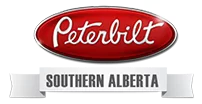Southern Alberta’s rugged beauty comes with a wide range of weather extremes—from frigid winter mornings to dry, dusty summers. These conditions don’t just impact the people who live and work here; they also place significant stress on heavy-duty vehicles. For truck operators, understanding how Southern Alberta’s climate affects your truck is essential to maintaining performance, preventing damage, and keeping your rig running safely and efficiently year-round.
At Peterbilt Southern Alberta, we know that local climate plays a big role in shaping truck maintenance schedules and service needs. With dealerships in Calgary, Red Deer, Lethbridge, and Medicine Hat, we’re equipped to help drivers tackle the unique demands of the region. Whether you’re managing a local fleet or hauling cross-province, weather-aware truck maintenance is crucial.
The Impact of Cold Winters on Heavy-Duty Trucks
Alberta winters can be harsh, with temperatures regularly plunging below -20°C. These cold conditions can severely impact your engine, battery, and fluid systems. Diesel fuel tends to gel at low temperatures, which can clog fuel lines and filters. Without proper additives or fuel treatment, trucks may struggle to start or even stall during operation.
Low temperatures also affect engine oil and transmission fluid, making them thicker and less effective at lubrication until warmed up. Block heaters are not a luxury in Southern Alberta—they’re a necessity. Cold cranking amps (CCA) in your battery must be high enough to handle sub-zero starts. And since rubber becomes more brittle in cold conditions, belts and hoses are more prone to cracking or failure.
To avoid these cold-weather setbacks, our technicians recommend consistent preventative service. Learn more about what to look for by reviewing How to spot early signs of engine trouble in your heavy-duty truck—especially heading into winter.
The Role of Dust, Dirt, and Dry Air
During the spring and summer months, the dry prairie air in Southern Alberta brings high dust levels. This fine particulate matter infiltrates air filters and engine compartments, leading to faster wear on components like turbochargers, radiators, and sensors.
Air filters and cabin filters need to be checked and changed more frequently during these dusty months. Otherwise, engine performance will degrade, and you may notice a drop in fuel efficiency or overheating due to clogged airflow systems.
These conditions also wreak havoc on brake systems. Dust and debris contribute to premature pad wear and can contaminate fluid reservoirs if not properly sealed. A clean truck isn’t just for looks—washing down your vehicle regularly helps prevent buildup that can corrode undercarriages and compromise safety.
Temperature Swings and Seasonal Change
One of the most challenging aspects of Southern Alberta’s climate is how quickly it can change. A spring morning might start below freezing and end in the mid-teens. These rapid temperature fluctuations can lead to condensation forming within fuel tanks and other sealed systems. Water contamination in fuel is a serious concern and can damage fuel injectors or freeze within lines.
Tire pressure is also heavily influenced by temperature. For every 5°C drop in ambient temperature, tire pressure decreases by roughly 1 PSI. Driving on underinflated tires reduces traction, increases wear, and harms fuel economy. That’s why it’s vital to check tire pressure not just seasonally but weekly during shoulder months.
If you’re unsure how climate shifts are impacting your fleet, schedule a multi-point inspection with our certified team. Keeping your truck running smoothly in Alberta requires proactive care. Peterbilt truck repair services in Alberta are designed for exactly this.
Corrosion from Road Salts and Moisture
Winter road maintenance in Alberta involves salt, brine, and sand, all of which can cling to your undercarriage and promote corrosion. This is particularly damaging to brake lines, fuel tanks, exhaust systems, and electrical wiring. Once rust sets in, it’s difficult and expensive to reverse.
Wash your truck frequently during winter and early spring, especially the frame, undercarriage, and wheel wells. Consider undercoating treatments to provide an extra layer of protection against salt-related corrosion.
Consideration for Electric and Alternative Fuel Trucks
While traditional diesel trucks face many of these climate-related challenges, electric vehicles (EVs) are not immune. Battery performance in electric trucks can drop significantly in sub-zero conditions. Additionally, Alberta’s long-haul routes may stretch the range of early-generation EVs.
Still, with the growing adoption of EV infrastructure and cold-weather advancements, Peterbilt electric trucks are becoming a viable alternative. Operators must plan charging schedules strategically and consider heated storage or parking when possible.
Get Climate-Smart with Your Truck Maintenance
Your Peterbilt truck is built to withstand tough environments, but even the best machines need proper care to perform in Southern Alberta’s demanding climate. From frozen starts to dusty roads and corrosion risks, each season brings its own challenges—and opportunities to protect your investment.
Partner with Peterbilt Southern Alberta to ensure your maintenance schedule aligns with the seasons. We offer expert diagnostics, genuine parts, and service from factory-trained technicians who understand Alberta’s unique conditions. Whether you need weatherproofing advice, a seasonal inspection, or a custom maintenance plan, we’re here to help.

